
2021 AIMBE Diversity Summit – Speakers
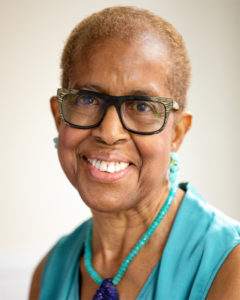
Lilia A. Abron, Ph.D., P.E., BCEE
CEO/President and Founder
PEER Consultants, P.C.
Dr. Lilia A. Abron, P.E., BCEE, the CEO/President and Founder of PEER Consultants, P.C. (PEER) is a trailblazer, a History Maker™, an entrepreneur. She is the first African-American woman in the nation to earn a Ph.D. in Chemical Engineering and the first African-American to start an engineering consulting firm focused on the environment and its environmental issues.
PEER is a 42-year-old, full-service environmental and civil engineering consulting firm. Since 1978, the firm is focused on providing transformative, appropriate, and sustainable solutions for its clients’ challenging environmental problems. Through our focus areas – Water Engineering & Sciences; Environmental Management; Energy Efficiency, Renewable Energy (EERE), Sustainability, & Resiliency – PEER provides professional services for the enhancement, maintenance, and restoration of the natural and built environments.
In 1966, Dr. Abron graduated with a B.S. degree in Chemistry from Lemoyne College in Memphis, TN, with Distinction. In 1968, she earned her M.S. degree in Environmental and Sanitary Engineering from Washington University in St. Louis. In 1972, Dr. Abron obtained her Ph.D. in Chemical Engineering from the University of Iowa.
Dr. Abron has been inducted to the prestigious National Academy of Engineering (NAE), American Academy of Arts & Sciences, and Tau Beta Pi, DC Alpha Chapter as an Eminent Engineer. She is also a member of the International Women’s Forum; Delta Sigma Theta, a social services sorority. She serves on the advisory boards of: College of Engineering, City College of New York; School of Engineering and Applied Sciences/ SEAS, Environmental and Energy Management Institute, both at George Washington University; Department of Energy, Environmental and Chemical Engineering, Washington University, St. Louis, Board of Trustees; LeMoyne-Owen College, Memphis, TN; and, President-Elect, The American Academy of Environmental Engineers and Scientists.
She is a registered Professional Engineer (P.E.), and a Board-Certified Environmental Engineer (BCEE).
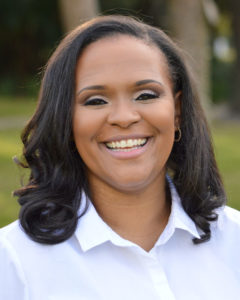
Devona F. Pierre, Ed.D.
Equity, Diversity, and Inclusion Director
St. Petersburg College
Dr. Devona F. Pierre is the inaugural Equity, Diversity, and Inclusion Director at St. Petersburg College. She is an educator, trainer, and strategist with transformational contributions toward organizational equity, diversity, and inclusion. Her work has been geared towards the implementation of programs that seek to provide parity to marginalized populations within higher education. For well over 15 years, she has served in public and private higher education organizations including in student and academic affairs, affirmative action, and equity, diversity, and inclusion. She has facilitated engaging training sessions with topics including race, racism, microaggressions, LGBTQIA, gender, ADA, and socio-economic status, among others. Dr. Pierre is a proud alumna of Dillard University in New Orleans, Louisiana and Auburn University in Alabama.
University President’s Address Racism in BME
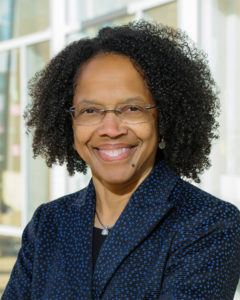
Gilda Barabino, Ph.D.
President
Olin College of Engineering
Gilda A. Barabino is President of Olin College of Engineering. She previously served as Daniel and Frances Berg Professor and Dean at The City College of New York’s (CCNY) Grove School of Engineering. Prior to joining CCNY, she was Associate Chair for Graduate Studies and Professor in the Wallace H. Coulter Department of Biomedical Engineering at Georgia Tech and Emory. At Georgia Tech she also served as the inaugural Vice Provost for Academic Diversity. Prior to Georgia Tech and Emory, she rose to the rank of Professor of Chemical Engineering and was Vice Provost for Undergraduate Education at Northeastern University. She is a noted investigator in the areas of sickle cell disease, cellular and tissue engineering, and the role of race/ethnicity and gender in science and engineering.
Dr. Barabino is a member of the National Academy of Engineering and the National Academy of Medicine, a fellow of the American Association for the Advancement of Science (AAAS), the American Institute of Chemical Engineers (AIChE), the American Institute for Medical and Biological Engineering (AIMBE) and the Biomedical Engineering Society (BMES). Dr. Barabino serves on the Scientific Advisory Board of the Chan Zuckerberg Biohub. She is Past-President of BMES and Past-President of AIMBE. She has received an honorary degree from Xavier University of Louisiana, the Presidential Award for Excellence in Science, Mathematics and Engineering Mentoring, AIChE’s Award for Service to Society, and AIMBE’s Pierre Galletti Award. Dr. Barabino is a member of the National Science Foundation’s (NSF) Advisory Committee for Engineering, the congressionally mandated Committee on Equal Opportunities in Science and Engineering, the AAAS Committee on Science, Engineering and Public Policy, and the incoming chair of the National Academies Committee on Women in Science, Engineering, and Medicine. She consults nationally and internationally on STEM education and research, diversity in higher education, policy, faculty and workforce development.
She received a B.S. from Xavier University of Louisiana and a Ph.D. from Rice University.
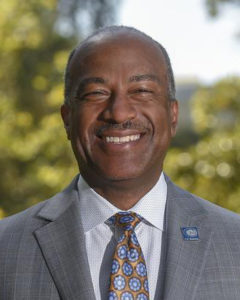
Gary May, Ph.D.
Chancellor
University of California, Davis
Chancellor Gary S. May is a highly engaged leader with a passion for helping others succeed. He believes success is best judged by how we enhance the lives of others.
Throughout his career, he’s championed diversity, equity and inclusion in both higher education and the workplace. He developed nationally recognized programs that attract, mentor and retain underrepresented groups in the STEM fields of science, technology, engineering and math. In 2015, President Obama honored him with the Presidential Award for Excellence in STEM Mentoring.
May earned his master’s and Ph.D. degrees in electrical engineering and computer science at UC Berkeley. He was inducted to the National Academy of Engineering in September 2018.
In April 2020, May was elected to the American Academy of Arts and Sciences under the classification of “educational and academic leadership.” He was one of 276 newly elected members, who include artists, scientists, and leaders in the public, nonprofit and private sectors.
A prominent voice in higher education, May is a Commissioner of the Council on Competitiveness and other national committees.
His vision as UC Davis’ seventh chancellor is to lead the university to new heights in academic excellence, inclusion, public service and upward mobility for students from all backgrounds.
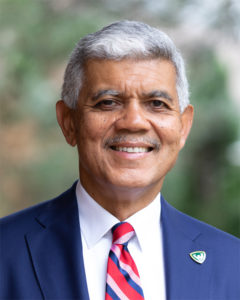
M. Roy Wilson, M.D.
President
Wayne State University
Dr. M. Roy Wilson became the 12th president of Wayne State University on August 1, 2013. Prior to joining Wayne State, President Wilson served as deputy director for strategic scientific planning and program coordination at the National Institute on Minority Health and Health Disparities of the National Institutes of Health.
Previously, he was dean of the School of Medicine and vice president for health sciences at Creighton University, president of the Texas Tech University Health Sciences Center, chancellor of the University of Colorado Denver and chair of the Board of Directors of University of Colorado Hospital/Anschutz Medical Campus. President Wilson also chaired the Board of Directors of the Charles R. Drew University of Medicine and Science and was acting president during part of that time.
President Wilson’s research has focused on glaucoma and blindness in populations from the Caribbean to West Africa. He is a member of the National Academy of Medicine (Institute of Medicine).
President Wilson received his undergraduate degree from Allegheny College, an M.S. in epidemiology from the University of California, Los Angeles, and an M.D. from Harvard Medical School.
Deans Panel: Institutional Changes to Implement NOW
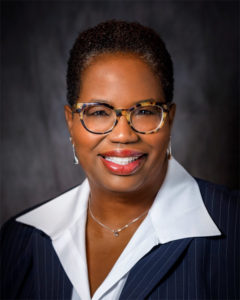
Stephanie G. Adams, Ph.D.
Dean of the Erik Jonsson School of Engineering and Computer Science
University of Texas, Dallas
Dr. Stephanie G. Adams is the 5th Dean of the Erik Jonsson School of Engineering and Computer Science at the University of Texas, Dallas and President of the American Society of Engineering Education (ASEE). Dr. Adams has held administrative and faculty positions at Old Dominion University, Virginia Tech, Virginia Commonwealth University and the University of Nebraska-Lincoln. Dr. Adams is an honor graduate of North Carolina A&T State University, where she earned her BS in Mechanical Engineering. She was awarded the Master of Engineering degree in Systems Engineering from the University of Virginia and she received her Ph.D. in Interdisciplinary Engineering from Texas A&M University, where she concentrated on Industrial Engineering and Management.
Her research interests include: Broadening Participation, Faculty and Graduate Student Development, International/Global Education, Teamwork and Team Effectiveness, and Quality Control and Management. In 2003, she received the CAREER award from the Engineering Education and Centers Division of the National Science Foundation. Dr. Adams is a leader in the advancement and inclusion of all in science, technology, engineering, and mathematics (STEM) education. She has worked with numerous of colleges and universities, government agencies and non-profit organizations on topics related to graduate education, mentoring, faculty development and diversifying STEM.
Adams is the recipient of numerous awards, including: the 2017 WEPAN Founders Award; the 2016 ASEE Engineering Management Bernie Sarchet Lifetime Award; the 2013 Alumni Achievement Award North Carolina A&T State University; and the Holling Teaching/Advising/Mentoring Award and Henry Y. Kleinkauf Outstanding Assistant Professor Teaching Award from the University of Nebraska-Lincoln. In 2005, she was selected as an AAAS/NSF Science and Engineering Policy Fellow and in 2013, she was selected as a fellow of ASEE.
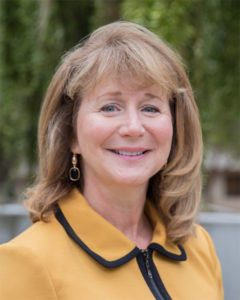
Jennifer Curtis, Ph.D.
Former Dean of the College of Engineering
Distinguished Professor of Chemical Engineering
University of California, Davis
Jennifer Sinclair Curtis is Distinguished Professor of Chemical Engineering at University of California, Davis. Her research focuses on the development and validation of particle flow models which have been extensively adopted by both commercial and open source CFD software packages. She was the first to partner with ANSYS Fluent to greatly expand the multi-phase simulation capability of the code which is used by 96 of the 100 biggest industrial companies in the world and over 40,000 customers. She is a Fellow of APS, AAAS, ASEE and AIChE. She is recipient of AIChE’s Particle Technology Forum’s Lifetime Achievement Award, a Fulbright Senior Research Scholar Award, AIChE’s Thomas-Baron Award in Fluid-Particle Systems, the William R. Jones Outstanding Mentor Award (McKnight Doctoral Fellowship Program), ASEE’s Chemical Engineering Lectureship Award, ASEE’s Benjamin Garver Lamme Award, ASEE’s CACHE Award for Excellence in Computing in Chemical Engineering Education, ASEE’s Sharon Keillor Award for Women in Engineering, and the NSF Presidential Young Investigator Award. She also received the Van Antwerpen Award – the highest award for service to the Institute by the AIChE Board of Directors. She received her PhD in Chemical Engineering from Princeton University and her BS in Chemical Engineering from Purdue University which recently recognized her as a distinguished engineering alumna. She currently serves as Co-Chair of the National Academies’ Board on Chemical Sciences and Technology.
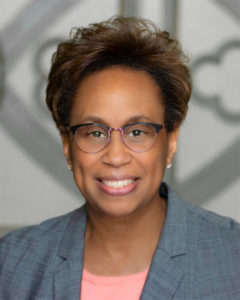
Rosemarie D. Wesson, Ph.D.
Interim Associate Provost for Research
The City College of New York
Rose began her current position as Interim Associate Provost for Research at CCNY in July 2020. Her responsibilities includepromoting, supporting, and expanding the research mission within the College.
Previously Rose held the position as the Associate Dean for Research in The Grove School of Engineering at City College. Inclose collaboration with the Dean, she served as the chief liaison between the School, federal and state funding agencies and other external partners. City College contains the only four-year, public school of engineering within New York City and one of the mostdiverse engineering schools in the nation.
With over thirteen years of experience at NSF, Rose excelled as both a Director and Program Director. She skillfully balanced complex and diverse program demands; convened hundreds of peer-reviewed panels; processed thousands of proposals;conducted due diligence on hundreds of projects; and awarded over $100M of funding. Her leadership was recognized with the NSF Director’s Award for Collaborative Integration and the NSF Director’s Award for Superior Accomplishment.
Rose received a Bachelor’s in Chemical Engineering from MIT and Master’s and Doctorate in Chemical Engineering from the University of Michigan. She is a licensed professional engineer.
Federal and Private Funding for Diversity and Inclusion
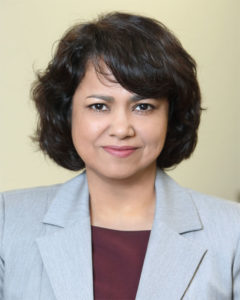
Noni H. Byrnes, Ph.D.
Director, Center for Scientific Review
National Institutes of Health
Dr. Byrnes is responsible for overseeing a majority of the NIH peer review process, including receipt of all NIH grant applications and peer review of ~ 76% of them, more than 64,000 grant applications per year, done with the assistance of more than 18,000 reviewers. Dr. Byrnes has a track record of innovation and leading change. Under her leadership, CSR launched a data-driven framework for the continuous evaluation of all of its 176 study sections, using objective measures and expert input from stakeholders in the scientific community. CSR continues to lead the NIH in implementation of best practices, training, and management strategies to avoid undue influence in peer review. In collaboration with the NIH Chief Officer for Scientific Workforce Diversity and NIGMS, Dr. Byrnes led the development, dissemination, and evaluation of preliminary training for reviewers and NIH staff to ensure review outcomes are based on review criteria instead of underlying assumptions. In addition, she has led collaborative efforts with the NIH Common Fund to pilot a multi-stage, partial double-blinded review for transformative R01s. More recently, Dr. Byrnes initiated new strategies to broaden the pool of reviewers and limit the influence of “gatekeepers” on peer review as well as led IT solutions such as the application of machine learning/artificial intelligence for flagging potential violations of review integrity. Prior to joining CSR, she worked in the pharmaceutical industry, where she conducted research to support Investigational New Drug submissions, served on Phase III clinical trial project teams, and provided oversight of contracts with Clinical Research Organizations. Dr. Byrnes holds a B.S. in chemistry from Allegheny College in Meadville, PA and a Ph.D. in analytical chemistry from Emory University in Atlanta, GA.
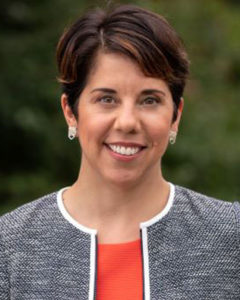
Lorelle Espinosa, Ph.D.
Program Director
Alfred P. Sloan Foundation
Dr. Lorelle Espinosa serves as program director at the Alfred P. Sloan Foundation, where she is responsible for developing and implementing evidence-based strategic priorities for the Foundation’s grantmaking to effectively advance diversity, equity, and inclusion (DEI) in STEM higher education. Her portfolio includes the Foundation’s signature DEI programs—the University Centers of Exemplary Mentoring and the Sloan Indigenous Graduate Partnership—which seek to transform STEM graduate education by supporting universities in strengthening pathways to and through master’s and doctoral study for Black, Latinx, and Indigenous populations. With more than 20 years of experience in higher education research, policy, and practice, Espinosa is a national voice on issues pertaining to college access and success for diverse populations and on the role of equity-minded leadership in postsecondary settings. A Pell Grant recipient and first-generation college graduate, Espinosa earned her Ph.D. in higher education and organizational change from the University of California, Los Angeles; her B.A. from the University of California, Davis; and her A.A. from Santa Barbara City College.

Christine Grant, Ph.D.
Professor of Chemical and Biomolecular Engineering
North Carolina State University
Professor Grant obtained her degrees in Chemical Engineering from Brown University (Sc.B.) and Georgia Institute of Technology (M.S. and Ph.D.). A Professor of Chemical and Biomolecular engineering at NC State for over 31 years, she’s conducted research in surface and interfacial science; advising postdocs and students ranging from the high school to the graduate student level. As the inaugural Associate Dean of Faculty Advancement in the College of Engineering, for over 12 years she’s been responsible for faculty development, special initiatives and promotion and tenure for the college. Grant is currently on an IPA assignment as a Program Director in the Engineering Education and Centers (EEC) Division in the Directorate for Engineering (ENG) at NSF. She currently manages the Broadening Participation in Engineering (BPE) program. In addition to her BPE portfolio, she also interfaces with NSF-wide broadening participation initiatives that include: HBCU-EIR, ADVANCE and INCLUDES. She is the recent President-elect of the American Institute of Chemical Engineers (AIChE), a global organization of 60,000+ members in 110 countries. A Life Member of AIChE, SWE, AISES, she is an AIChE Fellow. A recipient of the AAAS Mentor Award and the NSF Presidential Award for Excellence in Science, Math and Engineering Mentoring (PAESMEM); Grant’s been recognized for broadening the participation, promotion and retention of underrepresented minorities (URM) and women in STEM. She has been a Visiting Senior Scholar at AAAS and a Grant Expert at NSF. A change agent, she has been active as a PI on multiple NSF ADVANCE grants and served on the advisory board or consulted with several ADVANCE schools including Texas A&M, Cornell, Lehigh, U of New Hampshire and the University of Cincinnati promoting institutional transformation in STEM fields. She has been a speaker at numerous NSF AGEP and MRSEC programs. She has received over $5 million in NSF funding in the REU, ADVANCE, CBET, and GOALI programs. In the BPE realm, she has co-edited the book, “Success Strategies from Women in STEM: A Portable Mentor” by Elsevier/Academic Press and contributed chapters to “Growing Diverse STEM Communities: Methodologies, Impact and Evidence” (2019) and “Overcoming Barriers for Women of Color in STEM Fields” (2020).
Institutional Funding for DEI Initiatives
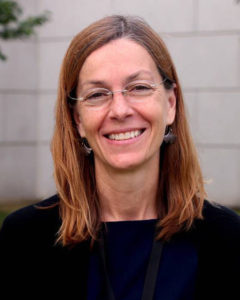
Alison Gammie, Ph.D.
Director, NIGMS
National Institutes of Health
Dr. Alison Gammie is director of the Division of Training, Workforce Development, and Diversity at the National Institute of General Medical Sciences (NIGMS), National Institutes of Health, which supports the Institute’s research training, career development, and diversity-building activities through a number of programs at the undergraduate, graduate, postdoctoral, and faculty levels.
Prior to coming to NIGMS, she was a Senior Lecturer at Princeton University, where, in addition to teaching, mentoring, and running a research laboratory, she served as an academic advisor, an Associate Member at the Cancer Institute of New Jersey, and the Director of Diversity Programs & Graduate Recruiting. Honors include Princeton’s President’s Award for Distinguished Teaching and the Graduate Mentoring Award, and the American Society for Microbiology Hinton Award for advancing the research careers of under-represented minorities.
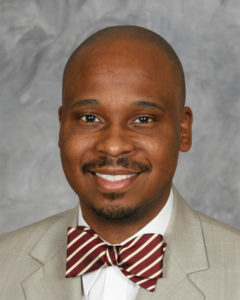
Rev. Dr. Bryant T. Marks, Sr.
Founder and Chief Equity Officer
National Training Institute on Race and Equity
Reverend Dr. Bryant T. Marks, Sr. is a minister, researcher, trainer, and award-winning educator. He is the Founder and Chief Equity Officer of the National Training Institute on Race and Equity and a tenured professor of Psychology at Morehouse College.
He served on President Obama’s Board of Advisors with the White House Initiative on Educational Excellence for African Americans and as senior advisor with the White House Initiative on Historically Black Colleges and Universities. Dr. Marks was also a contributor and trainer with the Obama Administration’s My Brother’s Keeper (MBK) and 21st Century Policing programs.
Between 2017 and 2020, Dr. Marks provided implicit bias training to over 45,000 employees and volunteers in law enforcement; city, county, and federal government; corporations; education; and healthcare.
Dr. Marks holds a B.A. in psychology and a minor in economics from Morehouse College, and a Masters and Ph.D. in Social Psychology from the University of Michigan. Dr. Marks is married to Dr. Kimberly Marks and father to Kim, Zion-Trinity, and Bryant II.
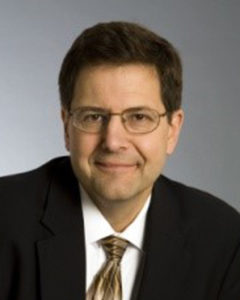
Thomas Rudin
Former Director, Board on Higher Education & Workforce
National Academies of Sciences, Engineering, and Medicine
Tom Rudin is the former Director of the Board on Higher Education and Workforce (BHEW) at the National Academies of Sciences, Engineering, and Medicine—a position he held from August 2014 through November 2020. BHEW provides government, academic and industry leadership with analyses, insights, and recommendations designed to inform action on issues in higher education and the science and engineering workforce. Prior to joining the National Academies, Mr. Rudin served as senior vice president for career readiness and senior vice president for advocacy, government relations and development at the College Board from 2006-2014. He was also vice president for government relations from 2004-2006 and executive director of grants planning and management from 1996-2004 at the College Board. Before joining the College Board, Mr. Rudin was a policy analyst at the National Institutes of Health in Bethesda, Maryland. In 1991, Mr. Rudin taught courses in U.S. public policy, human rights, and organizational management as a visiting instructor at the Middle East Technical University in Ankara, Turkey. In the early 1980s, he directed the work of the Governor’s Task Force on Science and Technology for North Carolina Governor James B. Hunt, Jr. He received a Bachelor of Arts degree from Purdue University, and he holds master’s degrees in public administration and in social work from the University of North Carolina at Chapel Hill.
Addressing Recruitment and Retention Strategies

Erika Tatiana Camacho, Ph.D.
Program Director for the ADVANCE and HSI
National Science Foundation
Dr. Erika Tatiana Camacho is NSF Program Director for the ADVANCE and HSI programs as well as a co-Lead for the latter. She is a Full Professor in Applied Mathematics at Arizona State University. She published the first set of mechanistic models addressing photoreceptor degeneration, providing a new framework to mitigate blindness. Her leadership, scholarship, and mentoring have won her numerous national recognitions including the 2019 AAAS Mentor Award, the 2014 PAESMEM award from the White House, the 2020 AWM Louise Hay Award for Mathematics Education, the 2018 AAHHE Outstanding Latino/a Faculty in Higher Education Research/Teaching (Research Institutions) Award, the 2017 Great Minds in STEM Education Award, the 2012 SACNAS Distinguished Mentoring Award, and the 2011 Hispanic Women’s Corporation National Latina Leadership Award among many other national awards and honors. She was a 2013-2014 MLK Visiting Assistant Professor of Mathematics at Massachusetts Institute of Technology (MIT).
She grew up in East Los Angeles and was taught by Jaime Escalante at Garfield High School. She received her B.A. in Mathematics and Economics from Wellesley College and earned her Ph.D. in Applied Mathematics from Cornell University. Dr. Camacho spent a year as a postdoctoral researcher at Los Alamos National Laboratory. She then held a tenure-track faculty position at Loyola Marymount University before joining the faculty at ASU in 2007. She co-directed multiple summer programs dedicated to the recruitment of undergraduate women, underrepresented minorities, and those that might not otherwise have the opportunity. Dr. Camacho’s passion is to continue the work and legacy of her mentors: to create opportunities for those individuals from marginalized communities and make education and advancement attainable to them.

Lesia Crumpton-Young, Ph.D.
Provost and Senior Vice President for Academic Affairs
Morgan State University
Dr. Crumpton-Young received the US Presidential Award for Excellence in Science, Mathematics, and Engineering Mentoring (PAESMEM) from President Obama for her achievements in helping to diversify the STEM Workforce in our nation. During the span of her 25-year career in academia, she has been recognized for her transformational leadership skills and an excellent record of working with teams to achieve unprecedented success at an accelerated pace. Over the span of her academic career, she has worked at Tennessee State University, The University of Central Florida, Texas A&M University, Mississippi State University, and The National Science Foundation. She is passionate about ensuring student academic, professional, and personal success and has received numerous teaching awards.
Dr. Crumpton-Young received her BS, MS, and Ph.D. in Industrial Engineering from Texas A&M University; where she holds the distinction of being the 1st African-American female to receive a Ph.D. in engineering and is currently completing an MBA degree. Dr. Young is an avid researcher and scholar who received the STEM Innovators award in 2017. As a researcher, she has served as Principal Investigator on numerous research projects and published numerous scholarly publications. Her research has been externally supported by the National Science Foundation, Office of Naval Research, NASA, and Department of Education; also, she has worked on many industrial research projects with sponsorship from companies such as UPS, IBM, Caterpillar, Intel, Garan Manufacturing, Southwest Airlines, and Lockheed Martin.
Dr. Crumpton-Young has recently authored the book entitled “ Key Productivity and Performance Strategies to Advance Your Career” and co-authored the book entitled “Company Success in Manufacturing Organizations A Holistic Systems Approach” as well as authored a workbook entitled “Advancing Your Faculty Career” and co-authored the “You’ve Got The Power!” Workbook series dedicated to empowering individuals to unleash their greatness. Dr. Crumpton-Young was the founder and former CEO of PowerfulEducation Technologies a company dedicated to enhancing the personal and professional development of youth and adults throughout our nation. Also, Dr. Crumpton-Young served as founder and Executive Director of the Power Promise Organization a non-profit entity dedicated to helping students realize the promise of a brighter future.
Dr. Crumpton-Young has been married for 27 years to Mr. Reginald Young and is the mother of two beautiful daughters, Mattlyn age 21, Junior Biology Major at Hampton University, and Ashlee age 18, Freshman Psychology Major at Prairie View A&M University.
Dr. Crumpton-Young currently serves as Provost and Senior Vice President for Academic Affairs at Morgan State University. She obtained this appointment on July 1, 2019.
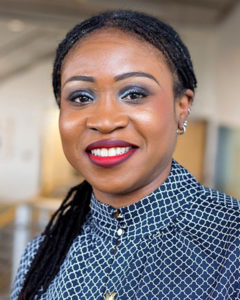
Lola Eniola-Adefeso, Ph.D.
Professor of Chemical Engineering, Biomedical Engineering and Macromolecular Science and Engineering
University of Michigan
Dr. Omolola Eniola-Adefeso is the University Diversity and Social Transformation Professor of Chemical Engineering, Biomedical Engineering and Macromolecular Science and Engineering at the University of Michigan-Ann Arbor. She graduated from the University of Maryland Baltimore County (UMBC) with a bachelor’s in Chemical and Biomolecular Engineering. She received a doctoral degree (2004) in Chemical and Biomolecular Engineering at the University of Pennsylvania. She was a postdoctoral associate at Baylor College of Medicine in Houston, Texas in the Pediatrics/Leukocyte Biology Department. Dr. Eniola-Adefeso joined the faculty of Chemical Engineering at the University of Michigan in 2006 where she runs the Cell Adhesion and Drug Delivery Laboratory. Since her arrival at Michigan, Dr. Eniola-Adefeso has received several honors and awards including the NSF CAREER Award, Lloyd Ferguson Young Investigator Award, American Heart Association Innovator Award, and the American Heart Association Scientist Development Grant. She was recently inducted into the American Institute for Medical and Biological Engineering (AIMBE). Her research is currently funded by multiple grants from the NIH National Heart, Lung and Blood Institute, American Heart Association and the National Science Foundation.
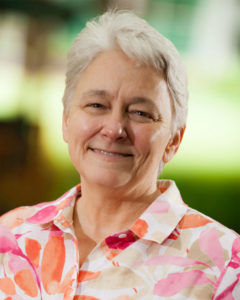
Suzanna M. Rose, Ph.D.
Associate Provost, Office to Advance Women, Equity and Diversity
Florida International University
Suzanna Rose is founding Associate Provost for the Office to Advance Women, Equity and Diversity and Professor of Psychology and Women’s and Gender Studies at Florida International University. Rose also is the lead investigator for FIU’s NSF ADVANCE Institutional Transformation grant that is aimed at improving the recruitment, promotion and retention of women and underrepresented minority faculty at FIU. A specific focus of the grant concerns exploring intersectional issues arising from the identities of STEM men faculty, particularly the cultural gender and race biases of international faculty. A key research project associated with the grant includes the development of an evidence-based Bystander Leadership Intervention program to reduce gender and race bias in faculty hiring, promotion and retention. Rose has published extensively on issues related to gender, race, and sexual orientation, including professional networks, career development, leadership, friendship, and personal relationships. She has consulted with many universities both nationally and internationally concerning strategies for recruiting and retaining women faculty in science and engineering.
Fostering an Anti-Racism Culture and Climate on Campus
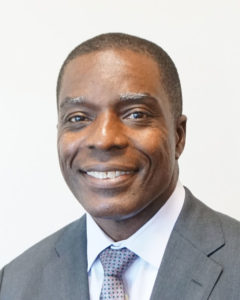
John M.M. Anderson, Ph.D.
Dean and Professor, College of Engineering and Architecture
Howard University
John M. M. Anderson holds a Ph.D. in electrical engineering from the University of Virginia, an M.S. in electrical engineering from the Georgia Institute of Technology, and an Sc.B. in electrical engineering from Brown University. After completing his doctoral studies, Dr. Anderson joined the Department of Electrical and Computer Engineering at the University of Florida. While he was on faculty at the University of Florida, Dr. Anderson spent his sabbatical as a visiting faculty member in the Department of Electrical and Computer Engineering at the University of Maryland in College Park. Since 2002, Dr. Anderson has been a faculty member in the Department of Electrical Engineering and Computer Science at Howard University in Washington, DC. Currently, Dr. Anderson is Dean of the Howard University College of Engineering and Architecture, as well as a professor in the Department of Electrical Engineering and Computer Science. In addition to his experiences in academia, Dr. Anderson has served as a health science administrator for the National Institute for Biomedical Imaging and Bioengineering at the National Institutes of Health and as an associate editor for the Institute of Electrical and Electronics Engineers Signal Processing Letters. Dr. Anderson is an NSF CAREER Award recipient and a holder of several patents. Dr. Anderson’s general research interests lie in the areas of signal and image processing.
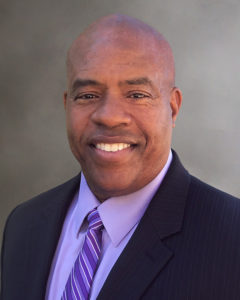
Myron Anderson, Ph.D.
Vice President for Inclusive Excellence
University of Texas at San Antonio
Myron Anderson is the founding Vice President for Inclusive Excellence at The University of Texas at San Antonio (UTSA. Anderson comes to UTSA from Metropolitan State University of Denver where he served as the Associate to the President for Diversity and Professor in the School of Education. As a member of the president’s cabinet, Anderson was the University’s chief diversity officer, responsible for developing an inclusive campus, and articulating and resolving current and future issues related to campus climate, diversity and inclusion. In addition, Anderson identified campus climate trends and was responsible for developing a strategic vision across all academic and administrative units to establish strategies for resolution of campus climate issues. As the Associate to the President for Diversity, Anderson consistently worked with executive officers (President, Provost, Vice Presidents, Deans) to lead institution-wide efforts to promote equity, inclusivity and to advance the University mission.
Anderson has worked in higher education for more than 25 years, in both administrative and academic positions. He also carries the rank of full professor of education technology in the School of Education. Prior to his current position, he served as Associate Chair of the Teacher Education Department at MSU Denver, Program Leader in Continuing Education and Director of Student Services at Virginia Tech and Winston-Salem State University, respectively. His areas of expertise are instructional delivery in virtual environments, organizational climate and strategic planning.
Anderson earned a Ph.D. in instructional technology, and a bachelor of arts in political science from Virginia Tech, and a master of science in curriculum and instruction from Radford University.
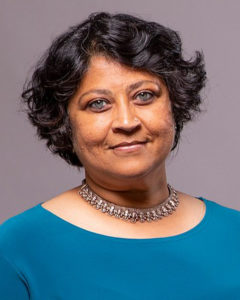
Nilanjana “Buju” Dasgupta, Ph.D.
Professor of Psychology and the Director of Faculty Equity and Inclusion
University of Massachusetts, Amherst
Nilanjana (Buju) Dasgupta is a Professor of Psychology and the Director of Faculty Equity and Inclusion at the University of Massachusetts, Amherst. Her research is on unconscious or implicit bias with emphasis on the plasticity of implicit bias—she studies the ways in which changes in social contexts correspondingly change implicit attitudes, beliefs, and behavior. Her research has been funded by the National Science Foundation, National Institutes of Health, and the American Psychological Foundation. The work has been recognized through the Distinguished Academic Outreach Award in Research from UMass Amherst (2014) and the Chancellor’s Award for Outstanding Accomplishments in Research and Creative Activity (2016), the Hidden Bias Research Prize awarded by the Level Playing Field Institute, a private foundation based in Silicon Valley (2012), and through distinguished faculty lectures at the National Science Foundation (2016) and at UMass Amherst (2016). A good bit of her time is spent translating scientific research to inform social problems such as educational disparities in science, engineering, and mathematics, and the underrepresentation of women and ethnic minorities in professional leadership roles. She has presented this work to K-12 teachers and administrators, university leaders and faculty, business leaders, policymakers on Capitol Hill, and at a White House roundtable organized by the Office of Science and Technology Policy and Office of Public Engagement.
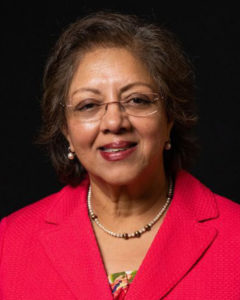
Ranu Jung, Ph.D.
Wallace H Coulter Eminent Scholar Endowed Chair in Biomedical Engineering
Florida International University
Ranu Jung holds the Wallace H Coulter Eminent Scholar Endowed Chair in Biomedical Engineering at Florida International University (FIU) where she is Head of the Department of Biomedical Engineering. She served as Interim Dean of the FIU College of Engineering and Computing from 2015 to 2017. Previously she was a member of the faculty at Arizona State University and the University of Kentucky. Professor Jung’s research is at the cutting edge between engineering and neuroscience, developing devices that lead to scientific advances with clear pathways to clinical application. Of special interest to her are biohybrid systems merging biologically inspired technologies with humans for recovery and restoration of lost function. Her team developed the first wireless, implantable, investigational neural-interface system for restoring sensations to amputees and received FDA approval to conduct a first-in-human clinical trial. In 2011 she conceived, edited, and published “Biohybrid Systems: Nerves, Interfaces, and Machines” and in 2015 as co-Editor-in-Chief, she published the first edition of a four-volume “Encyclopedia of Computational Neuroscience”. Holder of 12 U.S. patents, founder of one R&D Company, Jung is a Fellow of the National Academy of Inventors, the American Institute for Medical and Biological Engineering and the Biomedical Engineering Society. She is a Senior Member of IEEE and Society of Women Engineers, Full Member of Sigma Xi, and elected to the International Women’s Forum. Appointed to the US National Institutes of Health National Advisory Council for Biomedical Imaging and Bioengineering, she has chaired or served on advisory committees and scientific review panels for the US National Institutes of Health, the US National Science Foundation, research foundations, international universities and professional journals. Her honors include the 2019 Miami-Dade County In the Company of Women Science and Technology Award, the FIU 2016 Outstanding Faculty Torch Award, the 2011 New Florida Scholar’s Boost Award, the 2002 Kentucky Science and Engineering Award and Governor’s certificate of recognition, the Whitaker Foundation Young Investigator Award, the NIH National Research Service Award, the AHA NE Ohio Research Fellow Award, and a 3-year appointment as commissioner, Arizona Biomedical Research Commission. She was featured in 2019 by the National Institute of Biomedical Imaging and Bioengineering as an exceptional woman grantee. She is also a co-PI on FIU ADVANCE, a five-year, Institutional Transformation grant awarded by the National Science Foundation to develop institutional structures, processes, and climate that build an affirming and fair workplace for women and underrepresented groups. Jung received her Doctoral degree and Masters in Biomedical Engineering from Case Western Reserve University, USA. She received her Bachelors with Distinction, in Electronics & Communication Engineering from National Institute of Technology, Warangal, India.
Key Aspects of Mentoring Underrepresented Groups in BME
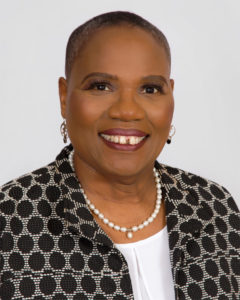
Adrienne T. Cooper, Ph.D.
Provost & Executive Vice President
Florida Memorial University
Adrienne Cooper is a visionary and proven leader who works diligently to ensure academic excellence, research advancement and student success. Dr. Cooper’s professional career has spanned industry, government, and academia, and her experience is wide-ranging, including business analysis, human resources and diversity education, educational outreach and engineering. She currently serves as the Provost and Executive Vice President at Florida Memorial University (FMU) where she is responsible for Academic Affairs, Student Affairs, Enrollment Management and Institutional Effectiveness. Prior to joining FMU, she served as the Associate Provost and Chief Research Officer at Bethune-Cookman University (B-CU) in Daytona Beach, Florida, where she led initiatives to stimulate research advancement and scholarly endeavors, enhance curriculum management, ensure academic program accreditation and review, increase academic enrichment, resolve student academic issues, and strengthen the Office of the Registrar.
Dr. Cooper received the Bachelor of Science in Chemical Engineering from the University of Tennessee and earned a PhD. in Environmental Engineering from the University of Florida. Her research has focused on Sustainable Systems Engineering and she is a recipient of the National Science Foundation CAREER Award and the Lindback Career Enhancement Minority Junior Faculty Award for her research in photocatalytic processes for water treatment and remediation. She is a prolific scholar who has authored over 25 publications. Her research has been presented to audiences across the United States, the Caribbean, England, Japan, and Zimbabwe. Dr. Cooper continues to provide service to her community and her discipline, having served on several committees of the National Academies of Science, Engineering and Medicine, university and K-12 advisory boards, and professional organizations. In her spare time Dr. Cooper enjoys playing tennis, reading suspenseful mystery, listening to her son play jazz, and debating politics with her mother.
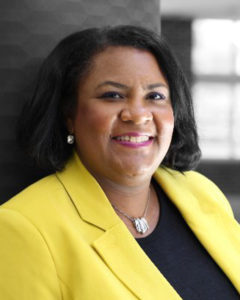
Monica F. Cox, Ph.D.
Professor, College of Engineering
The Ohio State University
Cox was named as the Chair of the Department of Engineering Education at Ohio State University in 2015. She is the first African-American woman to be a Full Professor in the College of Engineering at Ohio State University. She serves as Principal Investigator of a $1.4 million National Science Foundation grant for her project “Why We Persist: An Intersectional Study to Characterize and Examine the Experiences of Women Tenure-Track Faculty in Engineering”. The project will use existing databases for institutional analysis, develop a national survey and conduct interviews with women of color.
In 2010, Cox received a Presidential early Career Award for Scientists and Engineers (PECASE) from President Barack Obama. She obtained a doctorate in leadership and policy studies from Peabody College at Vanderbilt University, a Master of Science degree in industrial engineering from The University of Alabama, and a Bachelor of Science degree in mathematics (cum laude) from Spelman College.

Manu Platt, Ph.D.
Associate Professor, GRA Distinguished Scholar and Diversity Director, STC on Emergent Behaviors of Integrated Cellular Systems
Georgia Tech/Emory University
Dr. Manu Platt received his B.S. in Biology from Morehouse College in 2001 and his Ph.D. from the Georgia Tech and Emory joint program in biomedical engineering in 2006. He finished his postdoctoral training at MIT in orthopedic tissue engineering and systems biology prior to returning to Georgia Tech and Emory in the joint department of Biomedical Engineering in 2009, where he has since been promoted and tenured. His research centers on proteolytic mechanisms of tissue remodeling during disease progression using both experimental and computational approaches. These diseases of focus are health disparities in the U.S., but global health concerns: pediatric strokes in sickle cell disease, personalized and predictive medicine for breast cancer, and HIV-mediated cardiovascular disease, which has taken him to South Africa and Ethiopia for collaborative work to find solutions for low resource settings. His work has been funded by NIH Director’s New Innovator Award, International AIDS Society, Georgia Cancer Coalition, and the National Science Foundation.
Integrated with his research program are his mentoring goals of changing the look of the next generation of scientists and engineers to include all colors, genders, and backgrounds. Aligned with that goal, Dr. Platt, with Bob Nerem, co-founded and co-directs Project ENGAGES (Engaging the Next Generation At Georgia Tech in Engineering and Science), a program paying African-American high school students from Atlanta Public Schools to be researchers in Georgia Tech labs since 2013. Awards for mentoring and outreach have included the Georgia Tech Diversity Champion award and Georgia Tech Outstanding Doctoral Thesis Advisor. He was named an Emerging Scholar by Diverse: Issues in Higher Education magazine in 2015, the Atlanta 40 under 40 by the Atlanta Business Chronicle in 2016, the Biomedical Engineering Society Diversity Award and Lecture in 2017, and inducted as a Fellow of the American Institute for Medical and Biological Engineering (AIMBE) in 2019. Most excitingly to him, was selection in 2019 as one of the Root 100, annual list of the most influential African Americans, ages 25 to 45 by The Root, a web platform for Black Opinion News and Culture.
Public Accountability Playing Critical Role in Anti-Racism

Bob L. Belle, Jr., Ed.D.
Senior Consultant, State Doctoral Scholars Program
Southern Regional Education Board
Currently Bob Belle serves as Senior Consultant, SREB-State Doctoral Scholars Program in Atlanta, GA. Bob has served at the Southern Regional Education Board (SREB) for 18 years. His previous position at SREB was Director of the SREB AGEP Doctoral Scholars Program. Bob has been a fixture SREB’s annual Institute on Teaching and Mentoring since its inception in 1994. A review of Bob’s career as a former Director of Upward Bound at Seton Hall University; Director of the Office of Minority Services at the University of Central Florida: Director of Statewide Affirmative Action Programs for the State Council of Higher Education for Virginia; Director of the Office of Federal TRIO Programs; Acting Deputy Assistant Secretary of Education at the US Department of Education; and now at SREB reveal a long, varied but consistency of working on behalf of providing equal access and opportunity for those students that have traditionally been underserved. Bob earned a BS in Education from Glassboro State Teachers College now known as Rowan University; a MA in Pupil Personnel Services at Seton Hall University; and Ed.D. in Counseling Education from Lehigh University.
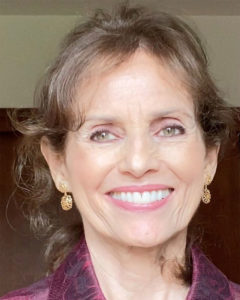
María de los Angeles Crummett, Ph.D.
Executive Director
Foundation for a College Education
María de los Angeles Crummett has over 25 years of experience in higher education and nonprofit leadership. She has a bachelor’s degree from Stanford University and a PhD from the Graduate Faculty, New School for Social Research with specializations in gender and development and Mexico-U.S. migration. She has developed, implemented, and secured funding for programs focused on diversity, equity, and inclusion as an integral part of academic achievement and student success. At the University of South Florida, she worked with the Offices of Undergraduate Research and Multicultural Affairs, to increase the number of underrepresented college students applying for nationally competitive scholarships including Fulbright, Gilman, and Freeman-Asia. She served as a faculty mentor to Latinx students in the McNair Achievement Program – a program designed to prepare low income, first-generation students for doctoral studies. At the Institute of International Education, she developed the Strategic Outreach Alliances to connect the Fulbright Scholar Program to a network of diverse associations including the American Association of Community Colleges, the African Studies Association, Hispanic Association of Colleges and Universities, and Diversity Abroad. Currently, Dr. Crummett is the Executive Director of the Foundation for a College Education. Its mission is to increase the number of students of color from East Palo Alto, California who graduate from a four-year college or university.
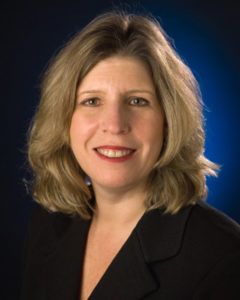
Angela Phillips Diaz
Executive Director of Government Research Relations
University of California, San Diego
As Executive Director of Government Research Relations at UC San Diego, Angela Phillips Diaz works with both Chancellor Pradeep K. Khosla and Vice Chancellor for Research Sandra A. Brown to ensure that the benefits, promise, and needs of UC San Diego’s research enterprise are effectively communicated to the Congress, federal agencies, departments, offices, and organizations in the Washington, D.C. metropolitan area. She initiates and arranges interactions between university leaders and elected and appointed officials in the nation’s capital and elsewhere, and she monitors and influences those legislative and agency developments that will or could affect UC San Diego. Diaz has held executive leadership positions in education, government relations, legislative affairs, aerospace and international relations at NASA, the White House Office of Science and Technology Policy, the University of California Riverside, and Purdue University. She has extensive experience in science and engineering education, science and technology policy, and has worked with various public and private start-up organizations and initiatives, ranging from Fortune 500 companies to startups, non-profit organizations, and government agencies in North America, Europe, Asia, and Australia. Diaz holds an MBA in management and finance from Marymount University of Virginia, and she is an alumna of the Harvard University Kennedy School of Government Senior Executive Program and the Harvard Business School Advanced Management Program. Her honors include the Virginia Foundation for Independent Colleges Distinguished Alumni Award, the NASA Outstanding Leadership Medal, the Marymount University Alumni Achievement Award, Meritorious Presidential Rank Award, and the Women In Aerospace Outstanding Member Award. She has authored and co-authored a variety of papers on education and innovation.
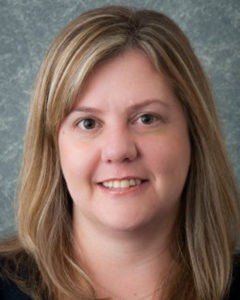
Megan McDevitt
Vice President of Communications
Gladstone Institutes
Megan Graziano McDevitt is the Vice President of Communications at Gladstone. Her team works to communicate Gladstone’s discoveries, innovations, and accomplishments. She is responsible for Gladstone’s varied communications needs for all Gladstone audiences, directly managing internal and external communications activities that promote and enhance Gladstone and its brand. Megan has over 24 years of experience in communications, marketing, management, public relations and event planning. She received a BA in communication technology from the University of Washington and was later designated a certified meeting professional (CMP). In 2018, Megan and her team developed and launched Gladstone’s first strategic communications plan and then in 2019, developed an overall strategic plan for the organization. As part as both of those efforts, she developed Gladstone’s first Diversity, Equity, and Inclusion strategy which started with defining what diversity means to Gladstone and writing Gladstone’s first DEI statements. Most recently her and her team, along with national partners, launched the “Amplified: Race and Reality in Stem,” series as a commitment to keep the Black Lives Matter movement on the top of people’s mind throughout 2020 and 2021.
 AIMBE
AIMBE
